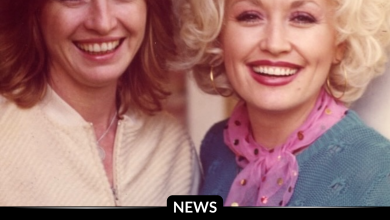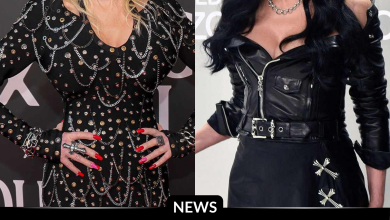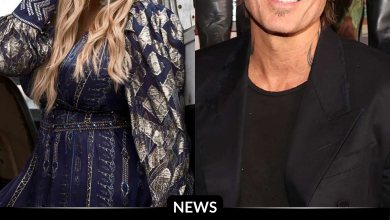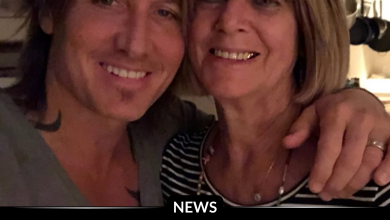Marvel’s Unbreakable Rule: The Forbidden DC Projects Actors Like Tom Hiddleston Can’t Touch
OPINION: This article may contain commentary which reflects the author's opinion.
The Marvel Cinematic Universe (MCU), which kicked off with Iron Man in 2008, has since become a global powerhouse, grossing over $17 billion by 2025. This success story was further bolstered by Disney’s acquisition of Marvel in 2009 for $4 billion, making the MCU an even more formidable competitor in the Hollywood landscape. As Marvel continues to grow and dominate, its rivalry with DC Films has intensified, leading to a set of strict contractual rules that govern how MCU actors navigate their careers. Among these, the most “scary” rule is one that has generated considerable buzz: MCU actors are prohibited from appearing in DC films.
The “Scary” Rule: No DC Films for MCU Actors
The restriction, known informally as the “DC ban,” has been described as “scary” due to its potentially career-defining consequences. Chris Hemsworth, who plays Thor in the MCU, famously confirmed in 2017 at the Australian Supernova Comic-Con that it was “illegal” for MCU actors to participate in DC projects. This rule is part of broader non-compete clauses embedded in Marvel’s contracts, designed to prevent any cross-contamination between the two major comic book universes. The idea is to preserve Marvel’s brand integrity and ensure that their actors remain exclusive to their projects.
Even Tom Hiddleston, known for his iconic portrayal of Loki in the MCU since Thor (2011), is bound by this rule. While there is no evidence that Hiddleston has sought a role in any DC films, his career has been almost entirely defined by his role as the mischievous god of mischief, appearing in Avengers: Infinity War and the Loki Disney+ series. For Hiddleston and other actors in the MCU, the rule is clear: no crossing over to the “enemy” camp.
The Contractual Framework: Strict, Yet Enforced
The contracts that actors sign when they join the MCU are some of the strictest in Hollywood. These agreements include not only non-compete clauses but also extensive non-disclosure agreements (NDAs) and background checks to prevent leaks. Tom Vaughan-Lawlor, who played Ebony Maw in Avengers: Infinity War, highlighted the tight security around Marvel projects, noting that actors are subject to strict confidentiality measures to protect the integrity of the films.
Marvel’s post-2009 acquisition strategy has emphasized family-friendly content, and Disney has ensured that all actors are aligned with this vision. The enforcement of the “no DC” rule is a key part of this broader brand protection, ensuring that the MCU maintains its competitive edge. For actors like Hiddleston, this can mean significant limitations in terms of the roles they can pursue outside of Marvel.
Exceptions to the Rule and Controversy
While the DC ban is typically enforced across the board, there have been some notable exceptions. One of the most significant examples is Josh Brolin, who played the villainous Thanos in the MCU while also portraying Cable in Deadpool 2 (2018)—before Disney’s acquisition of Fox. Kevin Feige, Marvel’s president, confirmed that Brolin faced no restrictions on playing both characters. This has sparked debate among fans and industry insiders, with some arguing that the rule is inconsistently applied and potentially unfair to actors seeking more diverse roles.
Another example that contradicts the “no DC” rule is Adewale Akinnuoye-Agbaje, who played Kurse in Thor: The Dark World and later appeared in Suicide Squad (2016). This instance has led to further discussion about whether the rule is applied universally or if certain exceptions are made depending on the circumstances.
Impact on Actors Like Tom Hiddleston
For actors like Tom Hiddleston, the DC ban limits the types of roles they can pursue, preventing them from exploring the potential for DC characters or storylines that may otherwise appeal to them. Hiddleston, for example, has often been suggested by fans as a great fit for roles in the DC universe, such as a villain in Justice League or The Batman. However, his MCU career is firmly tied to Loki, and any moves outside of Marvel’s jurisdiction could lead to a breach of contract.
The ban can be seen as “scary” because it creates a narrow pathway for actors to explore their talents outside of Marvel’s tightly controlled environment. With Marvel’s emphasis on maintaining a consistent brand image, actors must adhere to physical fitness regimes, charitable work, and intense secrecy around plot details, all of which contribute to the demanding nature of the role.
Other Rules and the “Scary” Environment of MCU Contracts
In addition to the DC ban, Marvel’s contracts include a range of other rules that contribute to the “scary” perception of working in the MCU. Actors are prohibited from revealing plot details, with Tom Holland being frequently paired with Benedict Cumberbatch to manage spoilers, particularly during the filming of Avengers: Infinity War. The physical demands of the roles are also intense—actors like Chris Pratt have undergone dramatic weight transformations for their parts in films like Guardians of the Galaxy, adhering to strict diets and workout regimes.
Furthermore, the pressure of contractual obligations can be felt during reshoots, which have caused frustration for some actors. Idris Elba, for instance, voiced his dissatisfaction with the reshoots for Thor: The Dark World, reflecting the challenges of working within Marvel’s rigorous schedule.
Conclusion: The Tight-Lipped and Demanding World of MCU Actors
The “no DC” rule is just one piece of the complex puzzle that makes up the experience of being an actor in the MCU. With multi-billion-dollar box office revenues and a vast global fanbase, Marvel has crafted a highly controlled environment where its stars are both protected and limited. For Tom Hiddleston and others, this means following strict guidelines that ensure the brand’s integrity is maintained at all costs—sometimes at the expense of broader career opportunities. In the world of superheroes and contracts, it’s clear that loyalty to the MCU comes with some serious strings attached.



